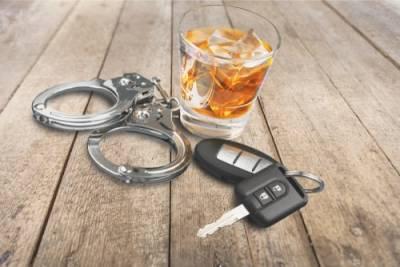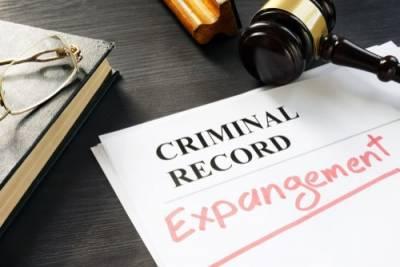Recent Blog Posts
What Should I Do If My Child Was Caught Drinking Underage or Drinking and Driving?
 The last year and a half have been stressful for everyone. As a result, more people are turning to alcohol and drugs to cope. This is true for adults as well as teenagers. The Connecticut Department of Mental Health and Addiction Services reports that underage drinking is on the rise. The organization hopes to raise awareness of the dangers of underage drinking and encourages individuals to reach out for help if they are struggling with substance use. In Connecticut, underage drinking and underage drinking and driving can lead to serious consequences. If your child was caught drinking, a juvenile criminal defense lawyer can help.
The last year and a half have been stressful for everyone. As a result, more people are turning to alcohol and drugs to cope. This is true for adults as well as teenagers. The Connecticut Department of Mental Health and Addiction Services reports that underage drinking is on the rise. The organization hopes to raise awareness of the dangers of underage drinking and encourages individuals to reach out for help if they are struggling with substance use. In Connecticut, underage drinking and underage drinking and driving can lead to serious consequences. If your child was caught drinking, a juvenile criminal defense lawyer can help.
Know the Consequences of Underage Drinking in Connecticut
With prom, high school graduation, and summer parties just around the corner, parents should remain vigilant regarding underage drinking. Many young people think that drinking before age 21 is no big deal. However, underage purchase and possession of alcohol can lead to stiff fines and even criminal penalties. Buying alcohol or possessing alcohol when you are younger than 21 is penalized by a fine of up to $500. Using a fake ID to purchase alcohol is a misdemeanor criminal offense punishable by a maximum of 30 days in jail and a driver’s license suspension of 150 days.
Can I Face Criminal Charges for Getting into a Bar Fight in Connecticut?
 Ample research has demonstrated the relationship between alcohol and violence. The National Institute on Alcohol Abuse and Alcoholism reports that one in four instances of violent crime involves an offender who was drinking. Consequently, bar fights are not uncommon in Connecticut or elsewhere in the U.S. If you were involved in a bar fight, you could be charged with a serious criminal offense. You could even be facing jail time for assault.
Ample research has demonstrated the relationship between alcohol and violence. The National Institute on Alcohol Abuse and Alcoholism reports that one in four instances of violent crime involves an offender who was drinking. Consequently, bar fights are not uncommon in Connecticut or elsewhere in the U.S. If you were involved in a bar fight, you could be charged with a serious criminal offense. You could even be facing jail time for assault.
You Could be Charged with Assault Even If You Were Defending Yourself
Bar fights often take place in dark, crowded bars or nightclubs. This can make it very difficult for police to determine who instigated the fight. Sometimes, the victim of a violent crime ends up being arrested and charged with assault even though he or she was not the instigator of the altercation. Regardless of your role in the fight, you could be subject to significant legal penalties, so it is crucial to seek qualified legal counsel right away.
Will My Child Be Sentenced to Juvenile Detention or Jail?
 Most people make poor decisions in their youth, and Connecticut law reflects that these decisions should not necessarily follow a young person for the rest of his or her life. However, this does not mean that juvenile offenders are absolved of all responsibility for their offenses. Juveniles who are convicted of a crime can be sentenced to juvenile detention, and in some cases, may even be tried as an adult and sentenced to jail. If your child has been arrested and charged with a criminal offense, speak with a criminal defense lawyer with experience in juvenile law for help.
Most people make poor decisions in their youth, and Connecticut law reflects that these decisions should not necessarily follow a young person for the rest of his or her life. However, this does not mean that juvenile offenders are absolved of all responsibility for their offenses. Juveniles who are convicted of a crime can be sentenced to juvenile detention, and in some cases, may even be tried as an adult and sentenced to jail. If your child has been arrested and charged with a criminal offense, speak with a criminal defense lawyer with experience in juvenile law for help.
Potential Consequences for Minors Who Are Accused of a Criminal Offense
The State of Connecticut recognizes that minors accused of criminal offenses deserve a second chance. Therefore, penalties for juvenile offenses are typically focused more on rehabilitating the alleged offender rather than punishing him or her. That being said, the penalties your child may face depend largely on the type of offense he or she allegedly committed. Crimes like vandalism or petty theft are typically punished less severely than violent offenses like assault.
When is a Crime Considered a Hate Crime in Connecticut?
 When someone breaks the law, they can be charged with a criminal offense and sentenced to various criminal penalties. However, not all crimes are treated equally under Connecticut or federal law. Some crimes are considered “hate crimes.” Understanding exactly what crimes are considered hate crimes is not always easy. The law is often difficult to interpret, and the issue is shrouded in controversy. However, one matter remains clear: If you are charged with a crime, speaking with a criminal defense attorney is the best way to ensure that you receive the legal advice and support you need.
When someone breaks the law, they can be charged with a criminal offense and sentenced to various criminal penalties. However, not all crimes are treated equally under Connecticut or federal law. Some crimes are considered “hate crimes.” Understanding exactly what crimes are considered hate crimes is not always easy. The law is often difficult to interpret, and the issue is shrouded in controversy. However, one matter remains clear: If you are charged with a crime, speaking with a criminal defense attorney is the best way to ensure that you receive the legal advice and support you need.
What is a Hate Crime?
Certain individuals are specifically protected by the law. When a crime targets a protected class of people, this crime may be considered a hate crime. In Connecticut, it is against the law to threaten, harm, or harass someone on the basis of his or her ethnicity, race, religion, gender, sexual orientation, or disability. An individual who is charged with a hate crime may face criminal penalties and monetary damages in a civil lawsuit.
How Can I Get My DUI Charges Dismissed in Connecticut?
 Driving under the influence of alcohol can lead to criminal consequences and administrative penalties in Connecticut. If you are arrested for DUI, you could be sentenced to jail time or community service and probation. You may also be fined up to $1000 or more. Your license may be temporarily suspended, and you may have to get an ignition interlock device in your vehicle to regain your driving privileges. Second or subsequent DUI offenses are penalized even more harshly. When defending against DUI charges, Connecticut DUI defense attorneys may argue that the charges should be dismissed entirely.
Driving under the influence of alcohol can lead to criminal consequences and administrative penalties in Connecticut. If you are arrested for DUI, you could be sentenced to jail time or community service and probation. You may also be fined up to $1000 or more. Your license may be temporarily suspended, and you may have to get an ignition interlock device in your vehicle to regain your driving privileges. Second or subsequent DUI offenses are penalized even more harshly. When defending against DUI charges, Connecticut DUI defense attorneys may argue that the charges should be dismissed entirely.
You May Be Able to Avoid a DUI Conviction
A skilled defense lawyer will know Connecticut DUI laws and how to defend against DUI charges. In some cases, DUI charges are dropped. Some of the most common reasons that DUI cases are dismissed include:
I Bought Something That Was Stolen. Can I Face Criminal Charges?
 Many people buy items through Facebook Marketplace, eBay, Craigslist, or other online marketplaces. Others go to garage sales, flea markets, or simply ask neighbors or friends when they are interested in purchasing something. What happens when someone buys property that was stolen? Can the buyer face criminal charges for theft even if he or she paid for the item? What if the buyer did not know that the item was stolen?
Many people buy items through Facebook Marketplace, eBay, Craigslist, or other online marketplaces. Others go to garage sales, flea markets, or simply ask neighbors or friends when they are interested in purchasing something. What happens when someone buys property that was stolen? Can the buyer face criminal charges for theft even if he or she paid for the item? What if the buyer did not know that the item was stolen?
Receiving Stolen Property Can Be Charged as Larceny
Consider the following situation: John buys a motorcycle from his neighbor, Jill. Unbeknownst to John, Jill stole the motorcycle from someone else. Can John face criminal theft charges? Many people are surprised to learn that the answer to this question is “yes.” An individual can be charged with theft in Connecticut if they buy or otherwise receive property that has been stolen.
Will I Go to Jail For a Car Accident That Caused Injury or Death?
 The moments immediately following a major car accident are often a blur of adrenaline-induced panic. After realizing that a serious accident has occurred, a driver may check on the other individuals involved in the accident only to find that another person has been seriously injured or killed. If you cause an accident in which a vehicle occupant, cyclist, or pedestrian is hurt or killed, do you go to jail? In a situation like this, the first thing you should do is speak with a skilled attorney. You could be facing charges for assault with a motor vehicle or vehicular homicide.
The moments immediately following a major car accident are often a blur of adrenaline-induced panic. After realizing that a serious accident has occurred, a driver may check on the other individuals involved in the accident only to find that another person has been seriously injured or killed. If you cause an accident in which a vehicle occupant, cyclist, or pedestrian is hurt or killed, do you go to jail? In a situation like this, the first thing you should do is speak with a skilled attorney. You could be facing charges for assault with a motor vehicle or vehicular homicide.
Connecticut Laws Regarding Negligent Homicide with a Motor Vehicle
Car accidents happen for almost countless reasons. Sometimes, a driver is simply not paying close enough attention to the road. Other times, the driver is impaired by drugs or alcohol. The term negligence means carelessness or recklessness. If a driver acts with negligence, meaning he or she fails to act as a reasonably prudent person would act in a similar situation, and causes an accident in which someone dies, he or she may be charged with negligent homicide with a motor vehicle. This offense is also referred to as vehicular homicide. If you are convicted of negligent homicide with a motor vehicle in Connecticut, you face up to six months in jail.
Do I Need a Lawyer to Buy a House in Connecticut?
 The requirements for purchasing a home vary from state to state. In Connecticut, a lawyer is required for any real estate transaction that involves title insurance. A title insurance agent must be a practicing attorney unless the agent received his or her title insurance license before June 12, 1984. Furthermore, as of October 2019, only lawyers licensed to practice in the state of Connecticut are permitted to perform certain real estate closings. Aside from these requirements, there are also many benefits associated with using a real estate lawyer when buying your home.
The requirements for purchasing a home vary from state to state. In Connecticut, a lawyer is required for any real estate transaction that involves title insurance. A title insurance agent must be a practicing attorney unless the agent received his or her title insurance license before June 12, 1984. Furthermore, as of October 2019, only lawyers licensed to practice in the state of Connecticut are permitted to perform certain real estate closings. Aside from these requirements, there are also many benefits associated with using a real estate lawyer when buying your home.
Peace of Mind During the Home-Buying Process
Buying a home is one of the most consequential decisions you will ever make. It is also likely to be one of the most significant financial purchases of your life. The process of buying a home can be complicated, stressful, and confusing. Mistakes can lead to massive legal and financial consequences. Working with an experienced real estate attorney gives you the peace of mind you need during this exciting, yet stressful, time in your life.
What to Do If Your Child Has Been Arrested for Fighting at School
 In recent decades, more and more attention has been given to bullying in schools. Teasing, psychological torment, cyberbullying through social media, and other forms of bullying often escalate into physical altercations. In many cases, it is hard to know which individual started a fight at school. Altercations can develop in a matter of seconds and teachers do not always see the circumstances that led up to a child being involved in a fight. If your son or daughter has been arrested and accused of school violence or bullying, it is important to learn about your child’s legal rights and options.
In recent decades, more and more attention has been given to bullying in schools. Teasing, psychological torment, cyberbullying through social media, and other forms of bullying often escalate into physical altercations. In many cases, it is hard to know which individual started a fight at school. Altercations can develop in a matter of seconds and teachers do not always see the circumstances that led up to a child being involved in a fight. If your son or daughter has been arrested and accused of school violence or bullying, it is important to learn about your child’s legal rights and options.
Understand Your Child’s Rights Under the Law
Your child has most of the same basic rights as an adult after being arrested. This includes the right to avoid self-incrimination and remain silent. Anything your child says to the police can be used against them. A child also has the right to contact their parent or guardian after being arrested. When you can talk to your child, encourage them to assert their rights and decline police questioning.
Can I Get My Child’s Criminal Record Expunged in Connecticut?
 As a parent, it can be extremely disheartening to watch your child make bad decisions. This is especially true if your child makes a mistake that leads to criminal charges. If your son or daughter has been convicted of drug possession, driving under the influence of alcohol, assault, theft, or another offense, you may worry about how this will affect the rest of their life. You may worry about your child being labeled a criminal for something that they did when they were very young. Fortunately, you may be able to get your child’s record expunged.
As a parent, it can be extremely disheartening to watch your child make bad decisions. This is especially true if your child makes a mistake that leads to criminal charges. If your son or daughter has been convicted of drug possession, driving under the influence of alcohol, assault, theft, or another offense, you may worry about how this will affect the rest of their life. You may worry about your child being labeled a criminal for something that they did when they were very young. Fortunately, you may be able to get your child’s record expunged.
Expungement and Sealing of a Juvenile Record
Juvenile criminal cases are handled differently depending on the severity of the crime, the juvenile’s age, and other factors. If your child’s case was decided in juvenile court, they are a “juvenile offender” or “juvenile delinquent.” This is not the same as being convicted of a crime in the way that adult offenders are convicted of a crime. Juvenile offenses or “delinquencies” may be expunged if:







